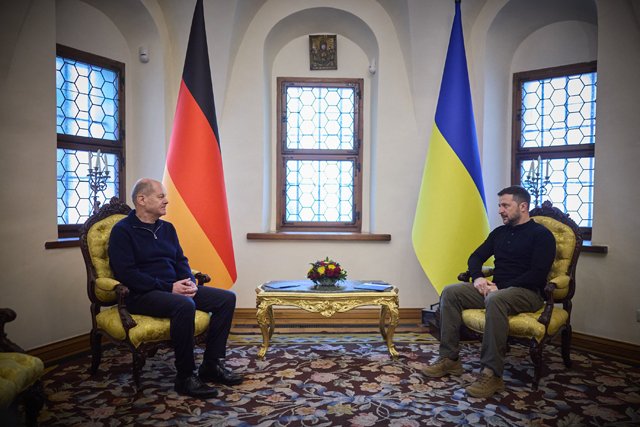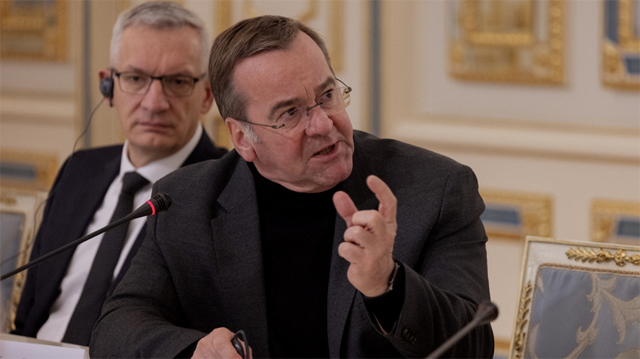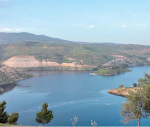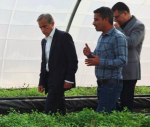You are here
German chancellor slams Trump's Ukraine rare earths demand
By AFP - Feb 08,2025 - Last updated at Feb 08,2025
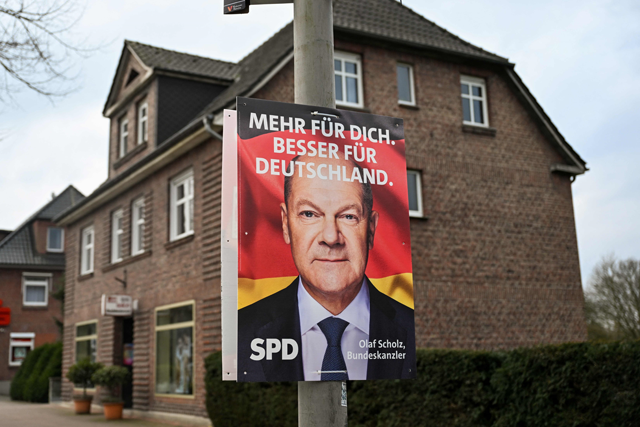
An election campaign ad poster for the Social Democratic Party (SPD) features German Chancellor Olaf Scholz, the SPD's main candidate, in Wulfen, western Germany, on Friday (AFP photo)
BERLIN — German chancellor Olaf Scholz slammed as "selfish and self-serving" Donald Trump's demands for Ukrainian rare earths in exchange for US military aid, in an interview published on Saturday.
Rare earths group metals used to transform power into motion in a vast array of things ranging from electric vehicles to missiles and there is no substitute for them.
"Ukraine is under attack and we are helping it, without asking to be paid in return. This should be everyone's position," Scholz told the RND media group, when asked about Trump's demands for a possible quid pro quo for US aid.
The German chancellor had already described Trump's demands as "very selfish" on Monday after a European Union summit in Brussels.
He had said Ukraine's resources should be used to finance everything needed after the war, such as reconstruction and maintaining a strong army.
"It would be very selfish, very self-serving" to demand something from Ukraine in exchange for aid, he said.
Trump had said he wanted "equalisation" from Ukraine for Washington financial support, adding: "We're telling Ukraine they have very valuable rare earths. We're looking to do a deal with Ukraine where they're going to secure what we're giving them with their rare earths and other things".
He added: "I want to have security of rare earth. We're putting in hundreds of billions of dollars. They have great rare earth. And I want security of the rare earth, and they're willing to do it."
On Friday, Ukrainian President Volodymyr Zelensky said Washington and Kyiv were planning "meetings and talks", after Trump raised a possible meeting with him next week.
Zelensky said on Tuesday that Ukraine was ready to receive investment from US firms in its rare earths -- or metals widely used in electronics.
In a peace plan unveiled in October, Zelensky had, without specifically mentioning rare earths, proposed a "special agreement" with his country's partners, allowing for "common protection" and "joint exploitation" of strategic resources.
He had cited as examples "uranium, titanium, lithium, graphite and other strategic resources of great value".
Related Articles
KYIV, Ukraine — Ukraine needs more weapons and stronger diplomatic backing to reach a "just peace" with Russia, President Volodymyr Zelensky
BERLIN — Germany's defence minister said he was open to sending German soldiers to Ukraine to help secure a demilitarised zone there i
DAVOS, Switzerland — EU, German and Chinese leaders took turns defending global cooperation in Davos on Tuesday as the spectre of new trade


